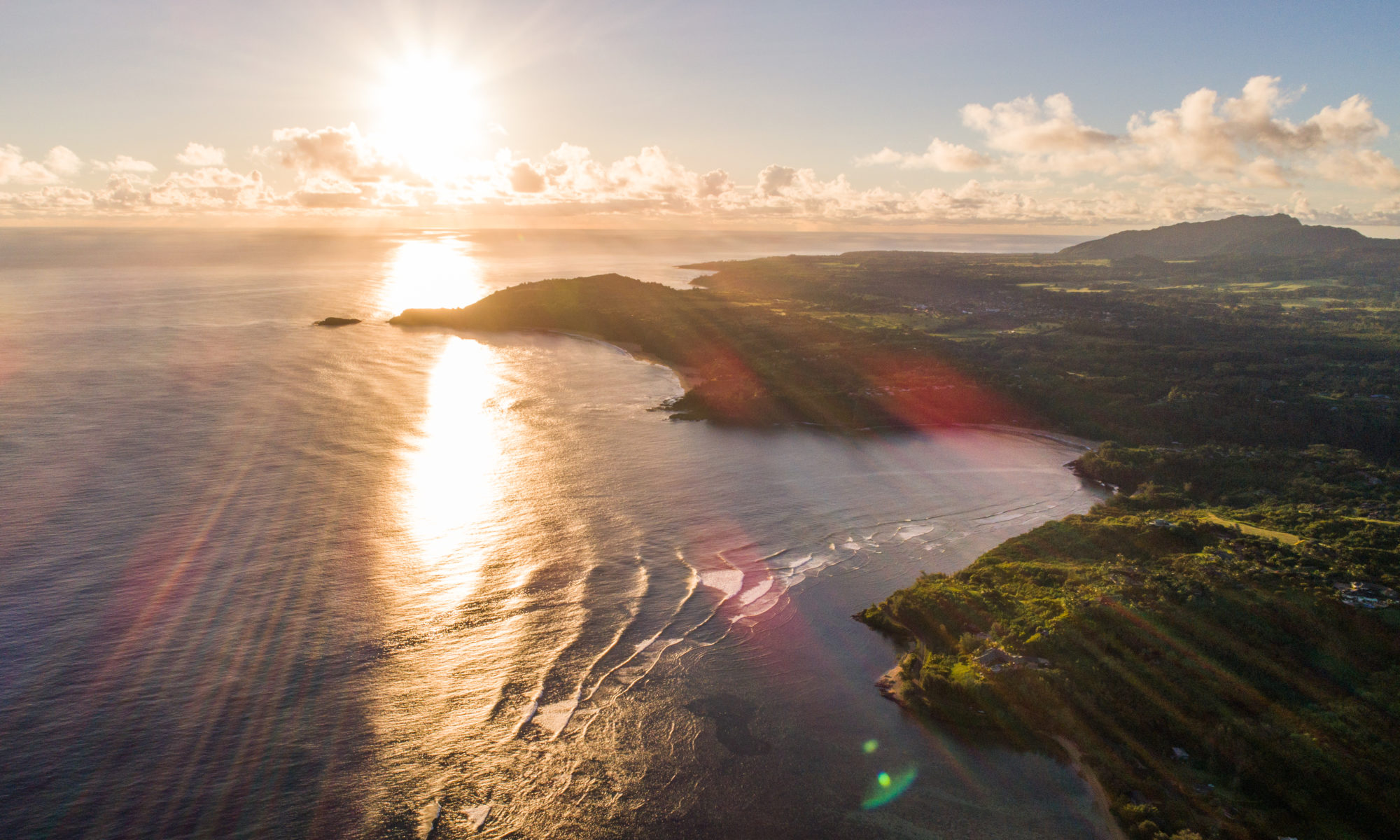
The tide is rising ahead of the early morning sun on the northeast coast of the Hawaiian island of Kaua‘i. Waves rush singing onto the outer reef where two throw net fishermen stalk the surge. An elderly woman with her silver hair in a kerchief makes her way toward shore, two octopuses tucked in her mesh bag. Within hours, two hundred tourists will snorkel, sunbathe, and teeter on the coral, few ever knowing that people fish here or that their catch sustains an entire kaiāulu (community) connected to this stretch of reef.
This coast is known as a playground for tourists and backdrop for Hollywood movies, but catch from small local reefs, and the sharing of this abundance, has sustained area families for centuries, helping them to thrive through tidal waves, hurricanes, an influx of new residents, and economic recessions. Yet fishing families are increasingly invisible and many have moved away, threatened by global commodification and loss of access to coastal lands that are now private retreats for star entertainers, investors, and dot-com millionaires.
Building on two decades of interviews with more than sixty Hawaiian elders, leaders, and fishermen and women, Kaiāulu shares their stories of enduring community efforts to perpetuate kuleana, often translated to mean “rights and responsibilities.” Community actions extend kuleana to include nurturing respectful relationships with resources, guarding and cultivating fishing spots, perpetuating collective harvests and sharing, maintaining connection to family lands, reasserting local governance rooted in ancestral values, and preparing future generations to carry on.
An important contribution to scholarship in the fields of natural resource management, geography, Indigenous Studies, and Hawaiian Studies, Kaiāulu is also a skillfully written and deeply personal tribute to a community based not on ownership, but reciprocity, responsibility, and caring for the places that shape and sustain us all.
Information on purchasing Kaiāulu: Gathering Tides, Mehana’s first book, can be found here. All proceeds from the sale of this book will benefit Kīpuka Kuleana, a Hawai‘i nonprofit dedicated to perpetuating kuleana, ahupua‘a-based natural resource management and connection to place through protection of cultural landscapes and family lands. Kīpuka Kuleana was founded in 2017 on the island of Kaua‘i.
Praise for Kaiāulu
“Mehana Vaughan’s Kaiāulu is heartbreaking in its recognition of what has disappeared, and what is slipping away, from her native Hawaiian culture―but at the same time, her book brims with hope, with love, and with reverence for the people who take care of their place down to the last grain of sand. Along with meticulous research, Vaughan offers the reader a portrayal of people she’s bound to, through blood and community, and the ways in which tradition and ritual are as essential to human survival as the food we eat.”
– Debra Gwartney, author of Live Through This
“Kaiāulu is an exquisitely written and important book that reflects the beauty of the people whose lives are being so severely damaged by rampant settler colonial capitalism. It is rich with the voices of the Kanaka ʻŌiwi of the Haleleʻa district of Kauaʻi and sweetened with our Native songs and poetry. Its stories make the reader cry out in anger and sorrow at the destruction of gorgeous and fertile land and shores that Kanaka ʻŌiwi have cultivated for a millennium or more. Mehana Blaich Vaughan has issued us a call to action that is impossible to ignore.”
– Noenoe K. Silva, author of The Power of the Steel-tipped Pen: Reconstructing Native Hawaiian Intellectual History
“Kaiāulu brings awareness and hope to all those interested in how we can―together―celebrate, restore, and sustain Earth’s rich biocultural diversity. Eloquently and lovingly written, this book provides deep and captivating insights into Hawaiian knowledge. It reflects values and relationships of elders, enriched with Dr. Vaughan’s personal experiences and stories―’a lei of stories’―from her family and community. Kaiāulu is full of teachings and lessons―some about development, conflict, and loss, and some about responsibility, respect, and renewal. The book is inspiring and a joy to read!”
– Nancy J. Turner, author of Ancient Pathways, Ancestral Knowledge: Ethnobotany and Ecological Wisdom of Indigenous Peoples of Northwestern North America
“Kaiāulu is a book of prayers, an exquisite inquiry into the nature of reciprocity and what it means to be human. Never have we needed the compassionate intelligence of Mehana Blaich Vaughan more. In the tradition of wisdom writers like Robin Wall Kimmerer and the storytelling magic of Louise Erdrich, we see a leader of the next generation on the page and in the world.”
– Terry Tempest Williams, Writer-in-Residence at Harvard Divinity School, author of The Hour of Land
“Mehana’s book is outstanding. …. I have not been able to put it down. In fact I am ordering several more for folks in the New Orleans and Louisiana region. The similarities are astounding. The way she explains place, care and family is pertinent to the bayou and may help folks here explain better to outsiders the similar dynamic.”
– Kristina Peterson, Lowlander Center
“I just started to read Kaiāulu and realized what a gift the Hawaiian people have in Mehana. Her writing skills are on par with the best authors I have read and her insight into the plight that kānaka maoli face is accurate and truthful. Since I got my smartphone I virtually gave up reading books. Kaiāulu has restored that passion. Mahalo Professor Mehana Blaich Vaughan.”
– Damien Kenison, Community Leader, Hoʻokena, Hawaiʻi
“Mahalo for your wonderful ‘Kaiāulu‘ that you put your heart and soul in. I had to read it through that night! It was great and I am thankful that [my husband] and I could have a little part in it. Me ke aloha nui”
– Carol Paik Goo & Wendell Paik, Wanini, Kauaʻi, Community members
















You must be logged in to post a comment.